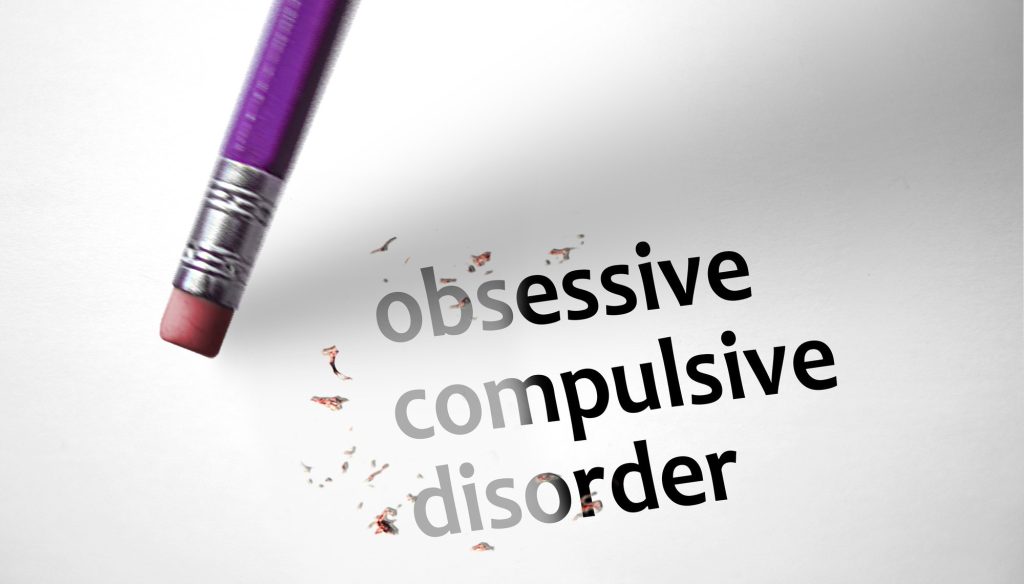OCD affects up to 2.3 percent of adults at some point in their lifetime.
This can be anything from believing your house is not clean enough to checking taps twenty times to be sure that they are turned off properly.
In the earlier stages, it might not be a big problem, but many people find themselves unable to resist the thoughts and the urges.
This happens very often with OCD. People think that their thoughts and beliefs will make them go crazy one day.
Let’s talk about what causes OCD to get worse.
Stress and Anxiety
Those who experience higher levels of stress and anxiety are more likely to have higher levels of OCD-related symptoms. Stress and anxiety can cause an emotional reaction and increase psychological distress that can lead to increased compulsions and rituals.
It is important to note that the relationship between stress and anxiety and OCD is bi-directional. This means that it can cause more OCD-related symptoms and OCD-related symptoms can produce more stress and anxiety. It is important to practice self-care strategies that help to mitigate stress and anxiety to reduce OCD symptoms.
This includes:
- stress-reduction techniques
- relaxation exercises
- physical activity
- psychotherapy
Proper management of stress and anxiety can help to minimize OCD-related symptoms and help build resilience.
Lack of Treatment
Lack of treatment is one of the main reasons why OCD can get worse. People who can’t access proper mental health care or who fail to complete their treatment properly are more likely to experience increased OCD symptoms.
Without the right type of therapy and medication, which works to effectively manage the symptoms, there can be a negative cycle of relapse and recurrence. People are more likely to become dependent on medication if they haven’t gone through proper counseling and behavioral therapy.
Seeking professional help from a Mental Health Program is crucial for OCD sufferers to effectively cope with their condition and prevent it from worsening.
Substance Use
Substance use can contribute to changes in the brain that can affect how it processes cognitive behaviors, such as those related to anxiety. Substance use also likely contributes to reducing motivation and overall compliance with recommended treatments and thus exacerbates symptoms.
Moreover, substance use also affects the reward system in the brain, leading to compulsions to continue the behavior, which further exacerbates symptoms. Continued use of substances should be avoided as it can negatively exacerbate the symptoms of OCD and impair a person’s recovery.
Isolation and Avoidance
The impact of the lack of social interaction can be especially severe for individuals suffering from OCD. Those living with OCD need to seek help from mental health professionals. They must remain in regular contact with friends and family who can provide support.
Isolation and avoidance can also cause rumination which can worsen the OCD symptoms. When people with OCD are feeling lonely and isolated, they may find themselves dwelling on intrusive thoughts. This can lead to increased anxiety and can increase the severity of the OCD symptoms.
It is important to remain connected with family and friends. This is crucial even when dealing with intense OCD symptoms. Doing so can help reduce anxiety and encourage individuals to remain engaged in their OCD treatment.
Negative Thought Patterns
One of the most significant contributing factors to OCD worsening is negative thought patterns. For those with OCD, persistent and recurring intrusive thoughts can lead to anxious worrying as well as compulsive behaviors.
Negative thought patterns can lead to a spiral of:
- self-doubt
- fear of the unknown
- obsessive thoughts
One of the best ways to prevent OCD from worsening is to develop coping skills. This helps regulate negative thinking and manage intrusive thoughts. Cognitive-behavioral therapy is an effective treatment for reducing OCD-related symptoms in individuals.
CBT helps individuals challenge their negative thinking and provides the necessary tools to manage intrusive thoughts. Additionally, addressing underlying issues and developing positive self-esteem can help individuals feel empowered and reduce symptoms of OCD.
Lack of Sleep
Sleep deprivation has a direct impact on mental health issues such as OCD. This is because it can increase the risk of developing or worsening the disorder.
For people with OCD, lack of sleep can interfere with their ability to manage symptoms. This makes them more prone to obsessive and intrusive thoughts. Furthermore, lack of sleep can lead to increased levels of stress and anxiety. This of which can further exacerbate existing obsessive-compulsive symptoms.
Those who suffer from OCD are also likely to have disrupted sleep due to repetitive and intrusive thoughts. This leads to further fatigue and exacerbation of the disorder.
It is important to practice good sleeping habits. This includes establishing regular bedtimes and avoiding electronic devices before bed. This helps to keep OCD symptoms under control.
Family Dynamics
Family dynamics and relationships can have a great impact on OCD and its severity. In particular, when family members are not equipped to deal with the compulsive behavior, it can lead to:
- anger
- resentment
- guilt
These of which in turn can worsen the condition. An environment that is overly critical and demanding can as well lead to increased anxiety and stress, which is a common trigger for OCD symptoms to worsen as discussed above.
Conversely, a supportive family environment that acknowledges the need to manage OCD can alleviate some of the symptoms. It allows for better-coping strategies.
Additionally, families that communicate openly and without judgment can provide a strong base of emotional support. This also can help manage OCD challenges and reduce the chances of symptoms worsening.
Understand What Causes OCD to Get Worse
OCD can be both daunting and consequential, yet it is important to remember you are not alone in this fight. Find a physician or mental health professional to help develop a strategic plan.
Ultimately, effective treatment such as therapy, medications, and practical lifestyle changes can help make living with OCD more manageable and less stressful. Take control of your health and well-being now and make sure to be on the lookout to better understand what causes OCD to get worse!
Visit our blog for more reads.
James Martin is a passionate writer and the founder of OnTimeMagazines & EastLifePro. He loves to write principally about technology trends. He loves to share his opinion on what’s happening in tech around the world.



